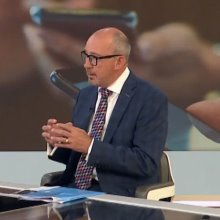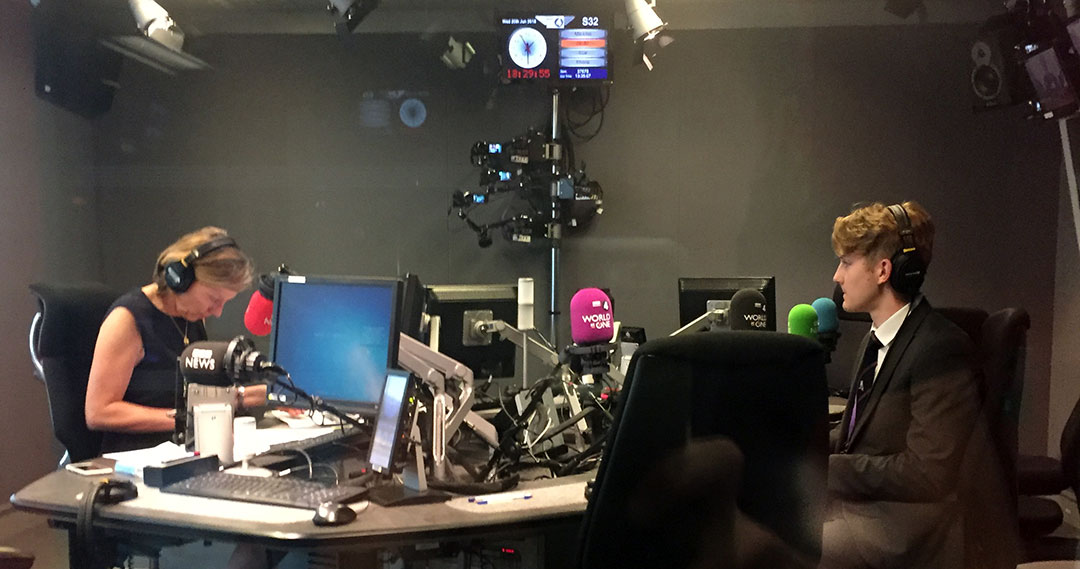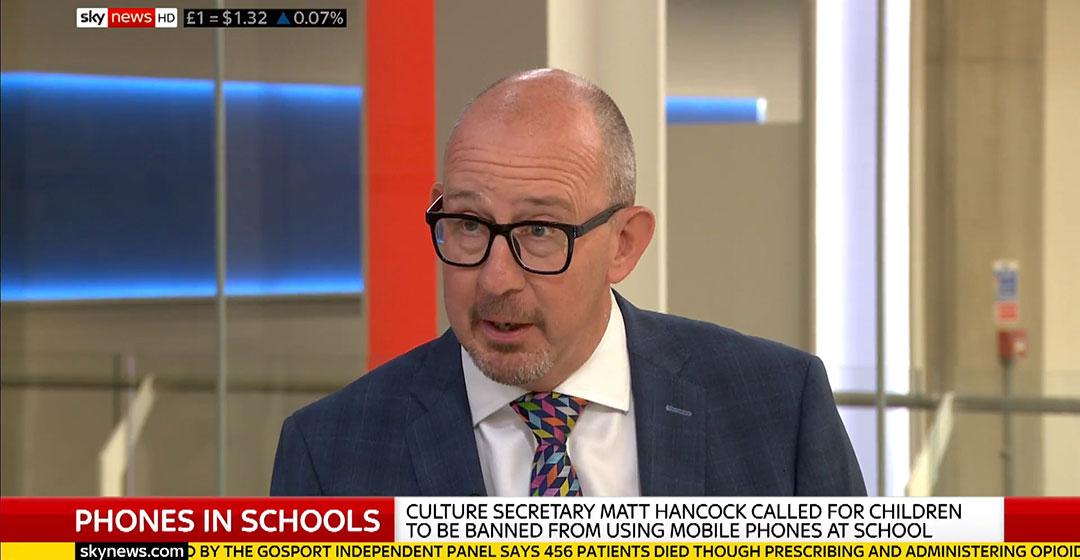
Shiplake College has once again hit the national news regarding our mobile phone ban, which was introduced in September 2016. We were approached to comment on how our ban has made an impact to our pupils and staff following an article published in today's Telegraph, in which the Culture Secretary, Matt Hancock has called for phones to be confiscated at the start of each day. Mr Hancock argues that they are a distraction and reduce students' ability to connect with one another - the latter of course being the driving force behind Mr Davies's decision to introduce the ban in the first place two years ago.
First up was Head of College, Will Bailey, who travelled to Broadcasting House to be interviewed by Sarah Montague for BBC Radio 4's World at One Programme. Will started the discussion explaining to Sarah about how pupils are given a Friday evening detention if caught using a mobile phone during the school day. He talked about how he had joined the College at Year 9 and for the first three years at Shiplake the use of mobiles had been embraced in the classroom, so when the announcement to ban them was made he, like the majority of pupils, was shocked and against the idea. However after a year he described how pupils just 'got on with it' and realised that they didn't need to use their phones as much as they thought they did.
Also speaking to Sarah was Dr Jo Toovey, a science teacher at a secondary school in Reading, who argued that phones should be allowed in the classroom as they are an excellent source of information and an extra aid to teaching - but admitting that they can be a distraction and that this is where behaviour policies and strict rules about when they can and can't be used come in. Will responded by explaining about our policy where every pupil is expected to bring a laptop or tablet to each lesson and that they have access to the internet to be able to benefit from these learning resources anyway (with social media sites blocked by the school's firewall). When asked if he or his friends found a way to break the rules he admitted that they have, and the interview ended before he was able to add that they've come to realise that it was better if they didn't!
Click here to listen to Will's interview, which starts at 35:10. (Please note this will only be available for 28 days).

In another broadcasting studio elsewhere in London this afternoon was the Headmaster, Gregg Davies, speaking to Emma Crosby live on Sky News. Gregg covered the fact that we need to look at the bigger picture of this 21st century phenomena, which we are only getting to grips with now. He pointed to research that 50% of young people are addicted to mobile phones, with 72% admitting they can't hear a ding or a vibration on their phone without immediately checking it. Indeed Emma suggested that this wasn't the case just for young people and that adults are just as guilty of such behaviour! To treat such addiction the school's role is to show and educate these young people that they can do without a phone. Emma quizzed Gregg on whether it is easier to enforce our policy because we are a part-boarding independent school, to which Gregg responded this isn't necessarily the case as state schools have excellent policies, similar to ours, which they follow well.
Gregg agreed with Emma that teachers are already busy and that it is difficult to expect them to spend time collecting in phones at the beginning of the day and handing them out again at the end, however because Shiplake provides a safe for each pupil to store their phone, it is up to the young person to lock it away - understanding that parents may wish their child to have their phone for travelling to and from each school each day.
Moving to the topic of the use of mobiles in the classroom, Gregg reached into his pocket for a mini tablet, demonstrating that we can benefit from all the same technology on such devices and laptops, which are not 3G-enabled, and so pupils are subject to the restrictions of the school's wifi network - giving them a rest from social media during the day. He pointed out that some of these tablets or laptops cost less that the mobiles that many students, at any type of school, have.
When asked if results are improving as a result of our policy Gregg replied 'we have seen that attention has improved, which has got to lead to better exam results'.












Sq.jpg/Prefects2024_25(1)Sq__500x500.jpg&command_2=resize&height_2=85)









